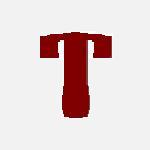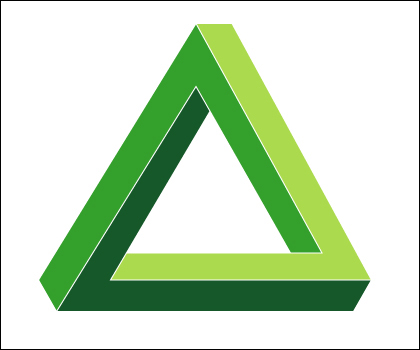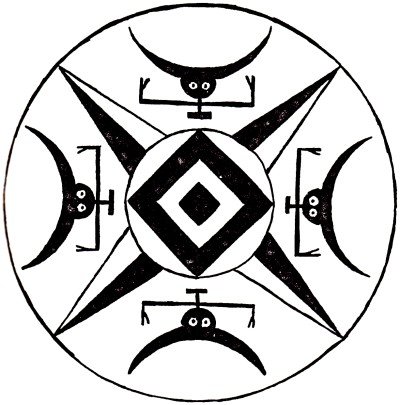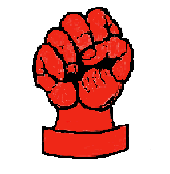High Deities (World of Tyrus Supplement)
These gods and goddesses rule over all aspects of will and mind. They are above the other gods, and generally are not worshipped individually.
Claud[edit]
| Overdeity | |
|---|---|
| Symbol: | Black, perfectly balanced scales |
| Home Plane: | Outlands |
| Alignment: | Neutral |
| Portfolio: | Balance, Creation |
| Clergy Alignments: | Lawful Neutral, Neutral, Chaotic Neutral |
| Domains: | Creation, Knowledge, Artifice |
| Favored Weapon: | Net |
Claud is the creator of all gods. He was there in the beginning of the world, spawned out of nothing. He created Tyrus and when he realized the vast governing he would have to do to maintain the world on his own, he created the other High Deities and the Low Deities. In turn the other deities created the Life Deities, to help maintain it even more. Claud maintains balance in the world of Tyrus, restraining the other deities from unbalancing the powers of the world. From time to time he will intervene in the world to keep things moving smoothly.
Dogma[edit]
Claud does not encourage people to worship him, and as such not many do. He does not employ any certain values other than moderation of all things and balance in life.
Clergy and Temples[edit]
Clergymen of Claud are rare and few, mostly consiting of historians and scholars. Most people in the world only know of Claud's name and that he is the creator of this world. They do not know much more than that. There are no temples of Claud in Tyrus, though there a several small societies dedicated to investigating Claud's reasoning and perspective on things in the past.
Wren[edit]
| Greater Deity | |
|---|---|
| Symbol: | Green triangle |
| Home Plane: | Elysium |
| Alignment: | Neutral Good |
| Portfolio: | Good |
| Clergy Alignments: | Lawful Good, Neutral Good, Chaotic Good |
| Domains: | Good, Healing, Liberation, Protection, Repose |
| Favored Weapon: | Javelin |
Wren is one of the first several deities that Claud created. She is good in every aspect, seeing the kind tendencies in almost every being. Wren is known to intervene rather frequently to save innocent beings from unfair deaths. Wren is opposite of Opis in her duties, and of course, has many conflicts with him.
Dogma[edit]
Those who worship Wren are taught to spread peace and kindness throughout the land, to forgive those ridden with guilt, and to preserve innocence in all beings. Wren clerics tend to stray away from fighting, unless they have some certain reason to take up arms.
Clergy and Temples[edit]
Wren chruches are minimal in luxuries and are often shelters for the poor and homeless. Healers aid their services to the injured at thses churches, and sleeping in one overnight is widely considered to be good luck. Wren churches are short and square in shape, usually made of wood, painted white, and adorned in vines and other forms of green plants.
Opis[edit]
| Greater Deity | |
|---|---|
| Symbol: | Circle with an X and square design inside |
| Home Plane: | Hades |
| Alignment: | Neutral Evil |
| Portfolio: | Evil |
| Clergy Alignments: | Lawful Evil, Neutral Evil, Chaotic Evil |
| Domains: | Evil, Madness, Darkness, Death, Destruction, War |
| Favored Weapon: | Flail |
Opis is one of the very first gods that were created by Claud. He is the purest of evil beings in all of time. Opis intends to usurp all forms of good if he can, but is often thwarted by Wren. He can see the tendencies of hate and greed in all beings, drawing on that power to create destruction and evil.
Dogma[edit]
Opis encourages his followers to destroy the good things in the land. To enslave your enemies and beat them down. Temples of Opis preach to their followers to take what they want from their neighbors, to strike down others good intentions. They are told that with destruction and hate comes power.
Clergy and Temples[edit]
Anyone can become a member of the Temple of Opis. Entrance is only allowed to those who have shown their desire for power and their hate for good. Often sacrifices must be brought by the prospective worshipper. Opis temples are made from black materials and covered in sharp architecture. Burning stakes are placed around them, often adorned with the heads of these sacrifices.
Yumo[edit]
| Greater Deity | |
|---|---|
| Symbol: | Red clenched fist |
| Home Plane: | Mechanus |
| Alignment: | Lawful Neutral |
| Portfolio: | Law, Order |
| Clergy Alignments: | Lawful Good, Lawful Neutral, Lawful Evil |
| Domains: | Law, Strength, Community, Nobility, Protection |
| Favored Weapon: | Warhammer |
Yumo is another of Claud's first creations. He was created to maintain law and rules within the world of Tyrus. Yumo ensures that the world does not break into anarchy. Till often preaches to him that there must be free-thinking and individuality widespread, and they often argue about law and chaos. Claud ensures that Yumo does not place the whole world under tight rules, but allows him to have his way sometimes.
Dogma[edit]
Yumo wants his followers to maintain order in the world. They must quiet rebellions and uphold the laws of their respective lands. Yumo clergymen preach that if there were no laws, there would be no unity. Everyone would disown each other and the world's races would die out.
Clergy and Temples[edit]
Yumo clergymen are an uptight bunch. They are never late, never out of line, and always obey all of the rules. If one rule is broken, no matter how minor, there is a punishment. Many of these punishments are self-inflicted, especially with traveling Yumo clerics who do not wish to invoke the wrath of their lord. Yumo churches are simple and without decoration. They are often made of plain materials and are always symmetrical. This has made for a very boring looking place of worship, but it is their way.
Till[edit]
| Greater Deity | |
|---|---|
| Symbol: | Checkmark |
| Home Plane: | Limbo |
| Alignment: | Chaotic Neutral |
| Portfolio: | Chaos, Anarchy |
| Clergy Alignments: | Chaotic Good, Chaotic Neutral, Chaotic Evil |
| Domains: | Chaos, Liberation, Madness, Trickery, Luck |
| Favored Weapon: | Dagger |
Till was the last of the first deities Claud first created. The inspiration for rebellion, Till is the creator of chaos. His duty is to ensure that there is individuality and free-though in the world. Till often goes overboard, creating full-blown rebellions that sometimes overthrow their oppressors and become oppressors themselves, much to Yumo's enjoyment. Yumo and Till often fight, as do their worshippers.
Dogma[edit]
Till worshippers are taught to think freely and be creative. They are told to break rules and fight the man.
Clergy and Temples[edit]
Till chruches are nonexistent, as that would be a form of law-making. There are no organized groups of Till, only individuals who get together to talk every once and a while, randomly, about the things they do not like with their respective governments, leaders, etc. Till clerics are also rare, but those who are often come from artist backgrounds. Till clerics are travelers, inspiring rebellion and anarchy wherever they go.
Back to Main Page → 3.5e Homebrew → Campaign Settings → World of Tyrus
| World of Tyrus Campaign Settingv | ||||||||
|---|---|---|---|---|---|---|---|---|

|
Player's Handbook | Character Creation, Races, Classes, Feats & Flaws, Magic, Equipment | ||||||
| World Reference | Monster Manual, History, Religion, Legends & Myths, Geography, Cosmology, Groups, NPCs | |||||||
| Dungeon Master's Guide | About Project Tyrus, Adding to Tyrus, Variant Rules, Adventures, Dangers, Resources | |||||||
| ||||||||





